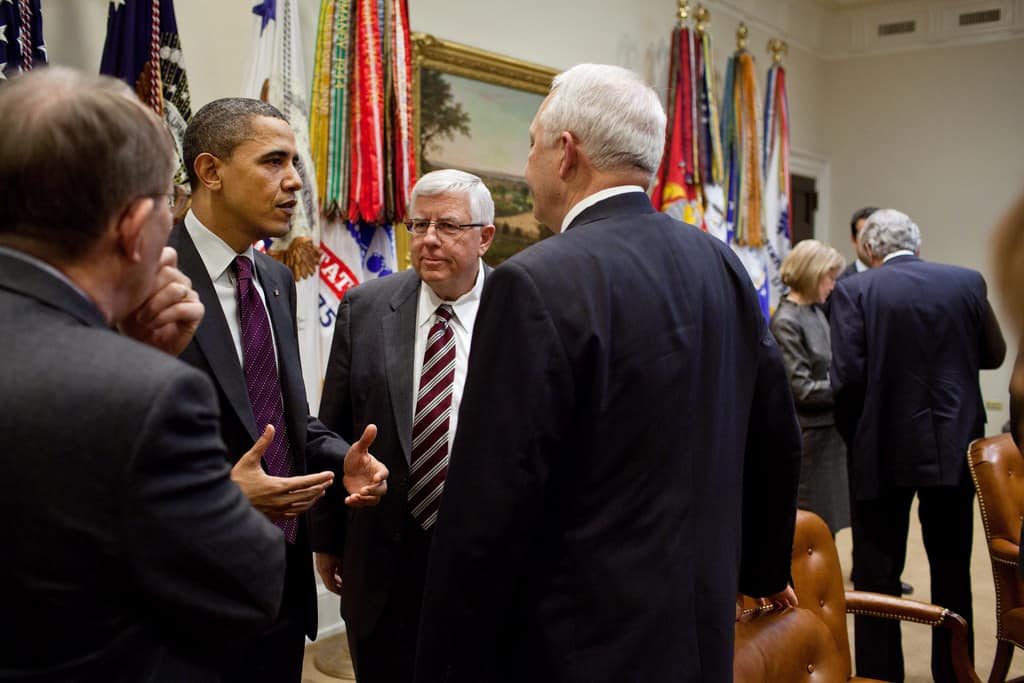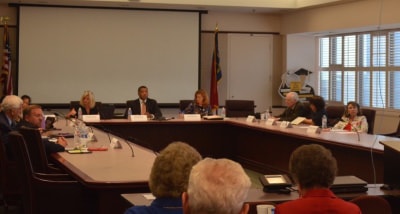

Today marks the long awaited end to No Child Left Behind, the 2002 law that ramped up the federal government’s role in holding public schools accountable and for years has been criticized by many parents, teachers, and education leaders.
A compromise bill overhauling the law has sailed through Congress over the past couple of weeks, and President Barack Obama will sign it today. It’s a significant achievement for congressional lawmakers, who have been trying to pass a rewrite of No Child Left Behind and its high-stakes testing regime for years but have consistently been mired in partisan wrangling.
Scan the reactions of politicians, superintendents, teachers, and education analysts, and a common theme emerges: The law is not perfect, but it’s unquestionably better than what’s currently in place.
What are the key differences between this legislation and No Child Left Behind?
The new law is a big win for states’ rights and noticeably reduces the extent to which the federal government can influence state schools. No, mandatory standardized tests aren’t going anywhere. But the law brings about sweeping changes to how test scores are used, restructures what accountability means for public schools, and removes the federal government’s role in teacher evaluation.
Under No Child Left Behind, states have been federally required to tie school success and teacher performance directly to test scores. Scores also have determined whether a state needed to intervene in a low-performing school. The new law still requires states to use test scores to assess schools but gives states the ability to design their own accountability plans, to decide how to incorporate the scores into those goals, and to figure out what to do about struggling schools.
Once North Carolina officials craft a plan to evaluate schools, it will still need federal approval, says Louis M. Fabrizio, director of data, research, and federal policy for the N.C. Department of Public Instruction. But in the past, he says, the secretary of education could refuse to sign off on a plan because, for instance, he or she didn’t like the way a state was doing teacher evaluations.
“The secretary will not have the authority to make those kinds of comments,” under the new law, he says.
It sounds like states can now essentially determine how to measure their own schools. Could that be a problem from an accountability standpoint?
June Atkinson, North Carolina’s school superintendent, doesn’t think so. “The framework for accountability and assessment gives needed flexibility while identifying measures that must be a part of the system,” she wrote in an email.
Test scores still have to be disaggregated for individual groups of high-need students, such as English-language learners, racial minorities, and special education students, Fabrizio says.
He says this law also specifically addresses state report cards — the annual reports that give performance grades to each NC school — and what information must be published for the public to see. And states have to start tracking a new accountability component: the extent to which English-language learners are attaining proficiency. Existing metrics include standardized-test success and, for high schools, graduation rates.
“I don’t think anyone can argue that there is going to be any kind of lack of reporting of how well students are doing,” Fabrizio says.
Are there any other notable changes in the new law?
Schools still have to test at least 95 percent of their students, but states no longer face a federal penalty when school fail to meet that benchmark; the state would determine what, if any, action to take. That’s never happened in North Carolina, by the way. States now have the flexibility to pass laws allowing parents to opt their children out of standardized tests for various reasons.
The law also prevents the Department of Education from encouraging states to adopt any specific set of academic standards, such as the divisive Common Core. Many GOP lawmakers are touting this provision as a major takeaway of power from the department. Sen. Richard Burr, a North Carolina Republican, trumpeted that “this legislation finally ends Washington’s Common Core mandate.”
That’s not necessarily a major change, though, Fabrizio says, because the department “did not in any way tell states they had to adopt the Common Core state standards. That’s just total misinformation that got spread by many people.”
What is North Carolina’s congressional delegation saying about the law?
Two Republican lawmakers from our state — Burr and Rep. Virginia Foxx — were on the conference committee that crafted the compromise bill.
Burr released a statement calling attention to language he sponsored that, according to him, secures up to $24 million in additional federal money for North Carolina schools each year to support low-income students. In an op-ed in Breitbart, Foxx praised the elimination of “the burdensome, one-size-fits-all accountability system that has done more to tie up states and school districts in red tape than to support local efforts to educate children.”
Rep. Alma Adams, a North Carolina Democrat, helped secure passage of a provision that allows schools to use federal funds to teach relationship skills, with the aim of curbing sexual violence and harassment. During remarks on the House floor last week, Adams said that the overall law “puts our students first and helps to close achievement gaps,” pointing to investments in early education and STEM education as particular victories.
The proposal passed the House and Senate overwhelmingly, but North Carolina Reps. Mark Meadows, Walter B. Jones, George Holding, and Mark Walker were among 64 House members who voted against it.
Once Obama signs the bill into law, what’s next?
The No Child Left Behind waivers under which most states, including North Carolina, have been operating expire on Aug. 1 of next year. Those waivers exempted states from certain provisions of the law, provided that officials could demonstrate how they were working to improve low-performing schools. But the new law won’t affect schools until the 2017-18 year. So, what happens in the interim?
It’s not entirely clear yet, Fabrizio says. The Department of Education will probably need to bring clarity to such issues through proposed regulations in the next few months, he says. The next school year is also tricky, he adds, because after the fall there will be a new president and a new secretary of education.
Still, Fabrizio is pleased that Congress has given states plenty of time to put together new plans for evaluating schools. North Carolina should have about nine months to develop an updated accountability system and gather feedback, he says. Part of the problem with No Child Left Behind was that it was signed in January 2002 and took effect when school started in the fall, he says.
With that law, “there were lots of decisions made during the school year, which caused a lot of confusion and chaos,” he says. “I have such great respect for Congress and their understanding that the transition from one accountability system to a new one requires time to put everything put in place properly.”


